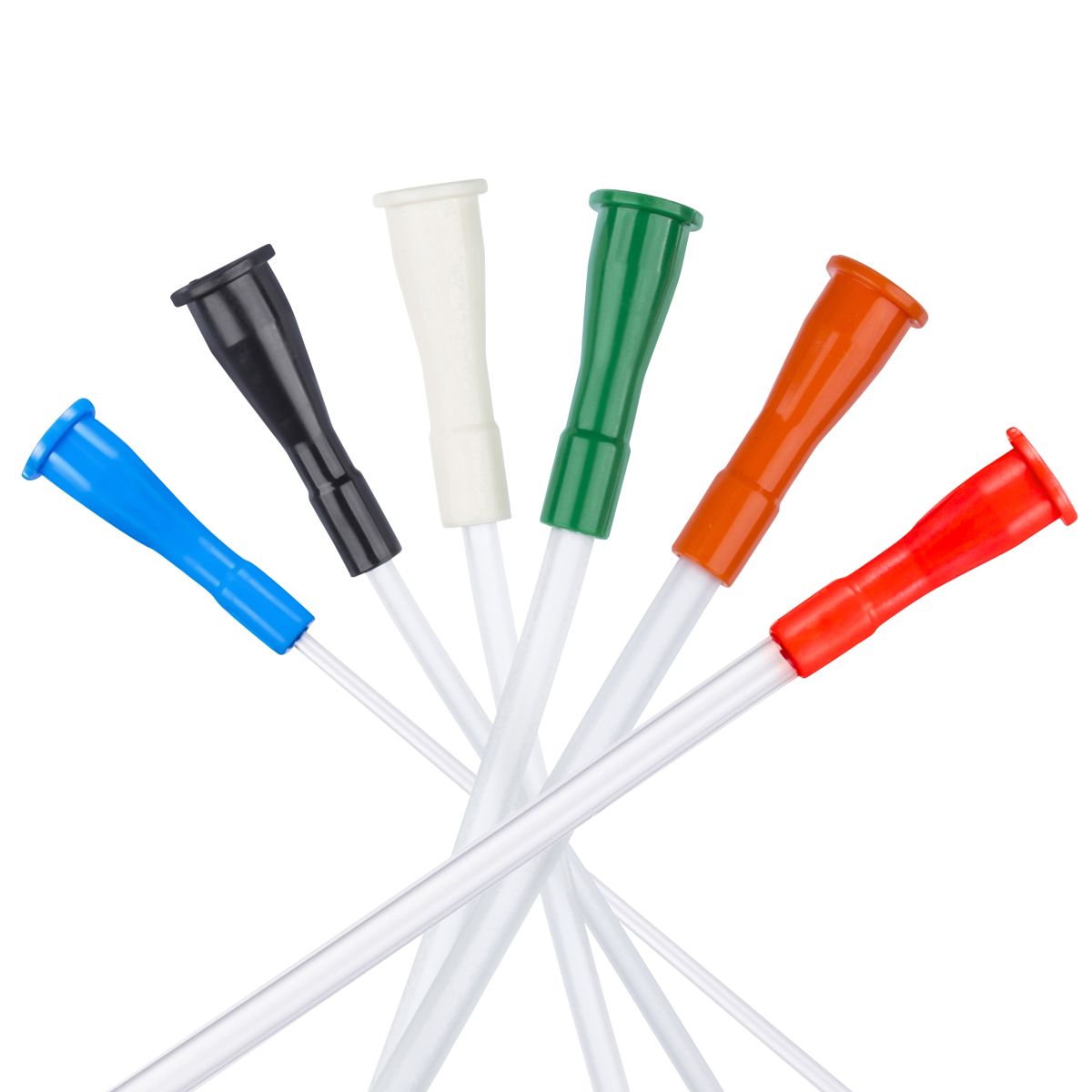New to using Catheters?
If you have found yourself here, you might be new to the world of catheters and have a few big questions. Here at Paralogic, we have a great team of friendly staff who are ready and willing to have a chat via email or phone to help ease your mind. We have also shared some of the crucial information we give to first-time catheter users below.
Catheter Types
- Intermittent catheters are inserted into the bladder, the urine is drained and then the catheter is removed and discarded.
We stock standard intermittent nelaton catheters as well as pre-lubricated or integrated bag catheters. Pre-lubricated catheters come with a lubricant already applied and integrated bag catheters have an attached bag to hold urine output so you can catheterise without a bathroom.
- Foley catheters are inserted into the body through either the urethra (also known as Urinary Tract Indwelling) or via a surgical incision in the abdomen (Suprapubic catheter / SPC).
Paralogic foley catheters are suitable for many people, but, we do also sell an open-tipped catheter which has superior drainage for people who have sediment or mucous in the bladder which could block a foley catheter.
- External catheters are worn by men - they adhere to the skin on the shaft and are drained into a urine collection bag.
The most common of these is a condom catheter or uridome, these are an adhesive sheath that fits over the penis, connects to a bag and drains urine. We also offer a male urinary pouch that is useful for those that are bed bound.
Male versus Female Catheters
- Male intermittent catheters are longer (40cm) than female intermittent catheters (18cm) as males have an extra piece of anatomy to navigate.
- Our Paralogic male length intermittent catheters come in two additional options. Tiemann/Coude tipped catheters have a bend at the very tip of the catheter to navigate the bend in a male urethra. Soft catheters are more flexible than our standard firmness catheters, they are not necessarily more comfortable, they are designed to flex around a swollen prostate.
- Some women find the additional length of a male catheter allows them to better guide the catheter, they are male and female in name only, you should always trial and choose what works best for you.

Catheter Lubrication
Some catheters come in a protective sleeve that contains lubricant, called pre-lubricated catheters. These tend to be more expensive than their non-lubricated neighbours.
We stock OptiLube Lubricating Jelly. We've chosen to stock this jelly as it has a thicker consistency and adheres to the catheters more than some other personal lubricants. This can be helpful in warmer locations or during the summer months.
We stock lubricant in sachets (like you would find the sugar in at a café) or tubes. It really is a personal choice as to what you prefer. Some people may use a tube in their home and have sachets of lube on hand for when they are out and about.
Catheter sizes explained - FG / FR / CH
Catheters are referred to by the diameter of the tube, the differences are only small but given where these are inserted, very important. Catheters sizes are the same across brands and countries.
Catheter sizes are called French Gauge and are denoted FG10, FG12, FG14 etc.
FG10, FR10 and CH10 are all the same thing. They stand for French Guage (FG), French (FR) or Charriere (CH), the name of the inventor of the measurement system.
Catheter colour
Catheters are identified by the same colour across all brands and countries. This will help you identify that you have the correct size. This colour is shown on the funnel in an intermittent catheter and a plastic ring on the connector of an indwelling catheter.
Size and colour chart
| Size | Width | Colour | |
| FG8 | 2.66mm | Blue | |
| FG10 | 3.33mm | Black | |
| FG12 | 4.00mm | White | |
| FG14 | 4.66mm | Green | |
| FG16 | 5.33mm | Orange | |
| FG18 | 6.00mm | Red | |
| FG20 | 6.66mm | Yellow | |
| FG22 | 7.33mm | Purple | |
| FG24 | 8.00mm | Light Blue | |
You can find more information on our FAQ page or the products pages linked above for specific catheters. Additionally, there is a wonderful service called the Continence Foundation of Australia helpline (1800 33 00 66) a free call number staffed by continence nurses who can offer excellent advice.

